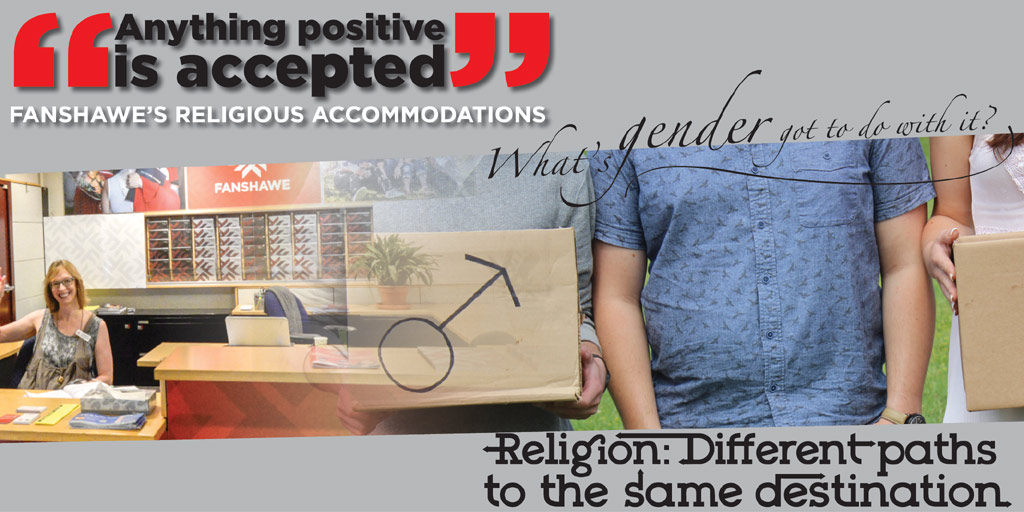"Anything positive is accepted": Fanshawe's religious accomodations

Days of discrimination and discomfort are now times of the past, as open-mindedness and acceptance are the key players in the new age. With social movements and battles creating norms of those less-favoured ideals of the past, establishments of all sorts are working in supporting the diverse range of religious beliefs of people by making accommodations and facilities increasingly common and easily accessible.
Fanshawe is no exception; it ensures that students have a safe place to exercise ones’ religious beliefs. By promoting unique religious and cultural practices throughout the campus, students are encouraged to engage and explore new cultures. After all, that’s what being Canadian is all about: diversity and multiculturalism.
Fanshawe Student Union (FSU) Entertainment VP Morganna Sampson, thinks Fanshawe is doing a great job at creating a positive and encouraging environment.
“Fanshawe and the FSU really do their best to create a space for everyone that is very inclusive. We create a loving culture and we also offer tons of resources. It really is just an open-door policy, and anyone is welcomed to come with new ideas with events. We for sure want to promote anything positive for students.”
The FSU hopes to see more willing students to approach the team with suggestions and ideas in supporting different religious practices, so that the appropriate steps can be taken to make things happen. It really just comes down to what the students want.
Contrary to popular belief, academic accommodation is requested less than designated areas for students to exercise religious practices are, such as social and prayer rooms. In the past, students were more likely to take time off from school for religious beliefs, but it is increasingly becoming a popular option for students to feel more comfortable in bringing their religion to school with them. The South Asian celebration, Holi, is one example of the type of cultural celebrations that usual participates have grown to love sharing with others. It’s all about the self-comfort within oneself when it comes down to sharing cultural beliefs and practices, and providing positive, safe spots in which students are not only able to participate in their religion, but also feel encouraged; this enables openness.
When Sampson was asked if she could expand on the type of requests that would be unlikely to be approved, there was a brief pause in the interview.
She sat in a momentary silence, taking a few moments to pass the wall her thought-process had hit. But that isn’t necessarily a bad thing; her inability to respond to that question brings forth a heartening emotion as it demonstrates the failure to recollect a time in which a student has felt unaccommodated. The lack of response is evidence of the great job that the college and student union has done to meet the needs of students.
According to Sampson, so long as the request is inclusive, and steers clear of any form of discrimination towards other religions, Fanshawe is more than happy to accommodate.
Currently Fanshawe offers a number of available student-run clubs, such as the Muslim Student Association, the Caribbean Association, and the African Association.
One of the most effective ways to promote this sort of diversity is by putting these options out there and keeping students informed. When these clubs go out and put on events, it is the sort of attraction that grabs the attention of students and makes involvement alluring.
Sampson said it is even more helpful when there are students demonstrating a strong interest in sharing their cultural and religious background.
“The FSU really does promote that student leadership aspect, and we really like to see students that like to stand up and show what they believe in because we love to see passionate students on campus.”
Guess the message is: if you want it, come and get it. Pat on the back, Fanshawe... Religion done well.














